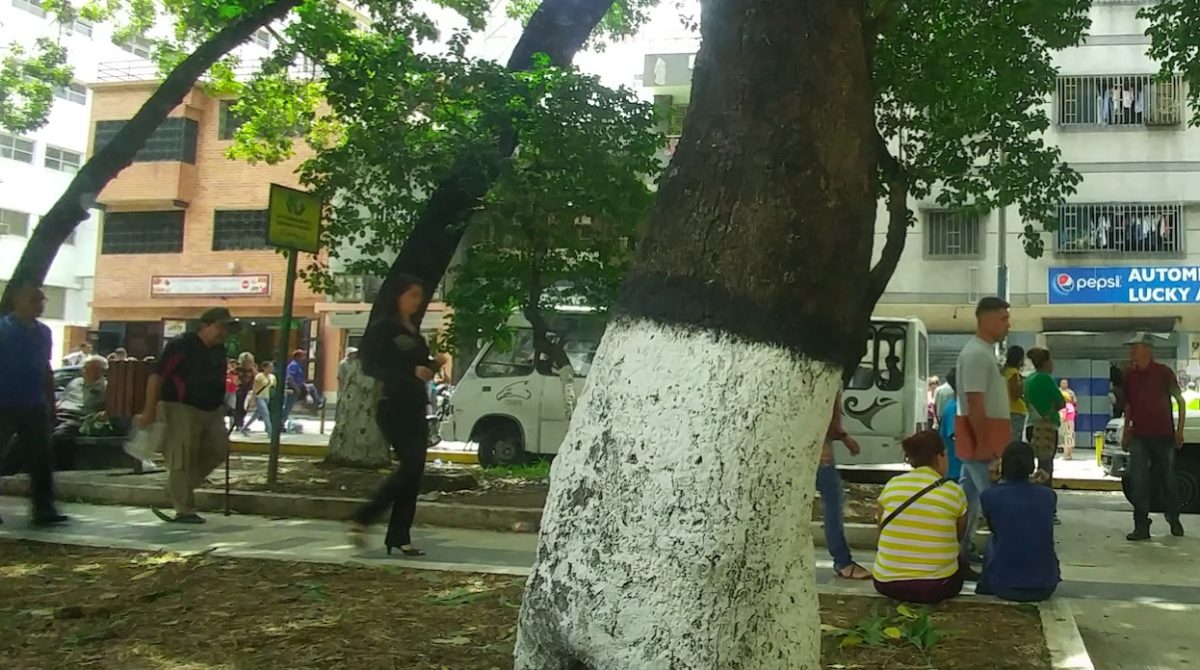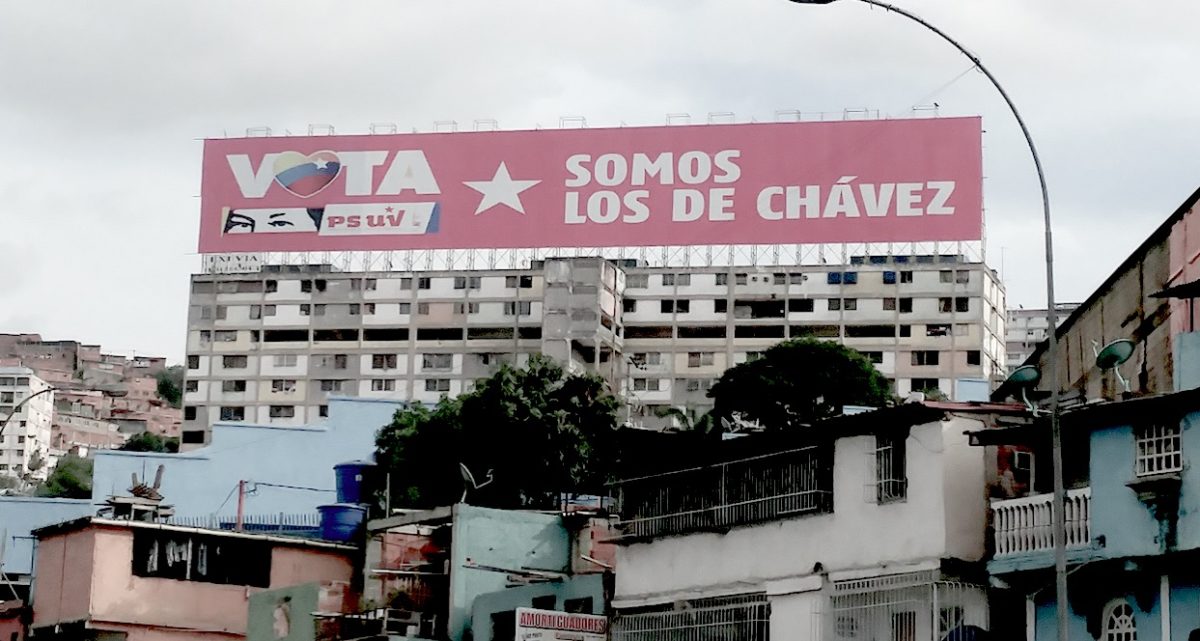“I tried to take pictures, but anywhere there were lines I didn’t want to take out my phone because I thought I’d get shot or have it stolen. The crime is out of control. Kidnappings and everything. It’s at a level that’s completely insane.”
It wasn’t a paranoid idea. We were off the clock with Luis Scull, the cofounder of a brand-new startup, Payfully. Scull and his cofounder are both from Venezuela, and now both live in Williamsburg, where the company, which provides financing for Airbnb renters, is based.
We wrote about Payfully when the company raised $300,000 in seed funding last month and Scull mentioned that he was going back home to Caracas for a bit for a wedding and to see his family. He got back yesterday and we sat down after work to talk about the trip. Scull went to college here and has stayed on for more than a decade since, but he visits his home country and family frequently. In the U.S. we see news reports of the situation in Venezuela: inflation out of control, food shortages, but we don’t always hear what it’s actually like to be living there.
One of the great assets of the Brooklyn tech world is its diversity. People come from all over the country and world to New York, and the most interesting of them tend to land in Brooklyn. This range of experiences and ideas no doubt help fuel innovation. But in talking about products and design and funding, we don’t always pay attention to this underlying force shaping the scene. Scull got back yesterday and had lots to report on his home country.
“In Caracas, for some reason, the mangoes are huge,” he said. “It’s a lush city and there are mango trees everywhere. You would always see kids trying to knock them off trees. Now, Tyler, it’s insane. There are kids, adults, everywhere trying to knock down mangoes because they’re hungry.”
Yesterday, the Wall Street Journal reported that Venezuela’s president, Nicolas Maduro, put the armed forces in charge of the distribution of food in the country, with the intent to, “alleviate crippling shortages [and] ceding yet more power to a military apparatus that is already involved in everything from banking to imports,” the Journal wrote.
“It’s always been a violent city but now it’s just skyrocketed in the last few months,” Scull said. In the last three months, attempts were made to kidnap two members of his sister-in-law’s family. They were fortunate enough to be driving bulletproof cars, and the gunshots at the car didn’t hurt anyone. They each escaped. “And this is like one of the affluent neighborhoods, imagine what it’s like in one of the poorer neighborhoods?”
Why is this happening? Why now? There are plenty of reasons, or course. Venezuela is the fifth-largest member of OPEC and oil accounts for, conservatively, more than half of its GDP. Oil prices are less than half of what they were two years ago. Another issue is politics. The radical leftist regime built by Hugo Chavez, which slid into totalitarianism, is crumbling. His successor, Maduro, is corrupt and ineffectual, Scull says. The institutions that create the infrastructure of society are now functioning predominantly for the purpose of keeping the administration in power.
“The government distributes long guns to militias as a hedge against the military in case the military tries a coup. And the militias, which are street gangs, control the poor neighborhoods and the kidnapping in the rich neighborhoods,” Scull said.
And what about the police in all this?
“The police are accomplice with the gangs,” Scull responded, flatly. “Gangs are kidnapping people in the white Land Cruisers which are known as government cars.”
Food is another issue. Venezuelans are now only allowed to go to the supermarket on certain days, based on the last digit of their national identification numbers. The lines are hours long and once you’re in, the selection is limited. The government issued price controls on consumer products and maintains an official inflation rate well below the market inflation rate. The result is that the actual products in the supermarkets are relatively cheap. This has the effect of encouraging food arbitrage, where people will wait in line and then resell the food at true market prices, sometimes right outside the supermarket.
“A lot of people have become instead, of drug dealers, food dealers,” Scull said. “They’ll come to your house and sell you salt, sugar, flour.”

Venezuelans in Caracas (in the background) line up down the block to wait for entrance into a supermarket. (Photo courtesy of Luis Scull)
Scull was adamant that this article not be about him. He even refused to take a photo, for fear of making it seem that he was looking for attention out of a national tragedy. Still, it is about him. He’s the one we talked to. We asked what it’s like to be outside of it all, if he worries about his family, which is all still there.
“Oh yeah,” he said. “It feels like you’re worried about first-world problems when your friends and family are frustrated to levels you can’t imagine. Like, the WiFi is not working. And you are genuinely worried about your family’s safety in a way you weren’t before. At some point over there you just grow numb to it.”
Scull was down for a wedding which had been called off and rescheduled to be much smaller. His brother’s wife’s sister, the one who’d had her car shot, still held her son’s first communion.
“What are you doing to do? Life goes on,” Scull said.
Well, there are some things you can do. Scull is active in the Venezuelan community in New York, and there are efforts to send in relief. His friend is raising money for a large orphanage. He recommended the organization Fe y Alegria as a good charity to donate to.
“It’s been pretty cool that among the expat community there’s been a lot of charity fund drives and it’s cool to see that solidarity,” he said. “But it’s also heartbreaking what they’re asking for: aspirin, diapers, flour.”
###
There is another way that the story of Venezuela can be of value, and it’s as a warning, Scull said, a very tough lesson. This situation did not come to pass for no reason. Specific decisions brought the country to this state. Venezuela has more oil than Saudi Arabia (albeit of a lower grade), there is no reason its expats should ever be holding drives for diapers, he said.
So what’s gonna happen?
“You’d think the government can’t last anymore. But you fear that a strong-arm military dictator that will be brutal and oppressive will take over,” Scull said. “It feels like something is about to happen, big time. We’ve been saying that for awhile but the pressure on the street is something I’ve never felt before. There’s a complete sense of discontent, true misery, hunger.”
Join the conversation!
Find news, events, jobs and people who share your interests on Technical.ly's open community Slack

